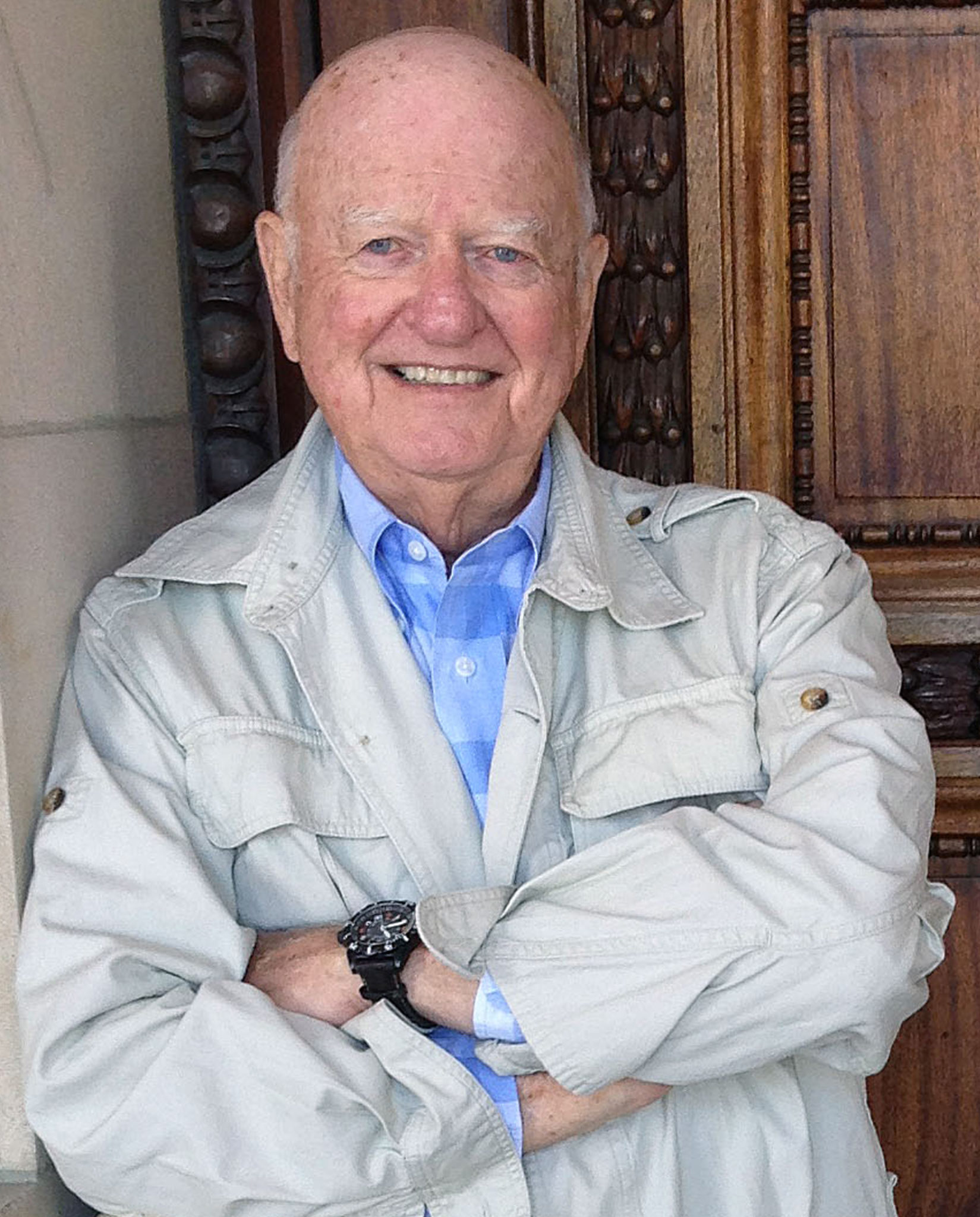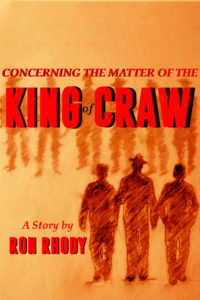


Outer Banks Publishing Group author Ron Rhody has agreed to serialize a few chapters of his newest novel giving readers a sneak peak into his book based the real life of John Fallis, a legendary figure, who was like a Robin Hood in Frankfort, Kentucky during the Roaring Twenties.
Each week, we will present a new chapter here or you can read it on Ron’s blog.
CONCERNING THE MATTER OF THE KING OF CRAW will be released Nov. 5, 2016 at the Kentucky Book Fair, Frankfort, KY or you can pre-order a copy from our bookstore for $11.99.
By Ron Rhody
 I’m not sure how to characterize it. It is a work of fiction, yes — but it is based on real people and real events. A mystery? Yes, but not of the usual kind. This one has to do with a man of glaring contradictions — a mercurial man of lethal temper and tender compassion whose acts cause him to becomes an iconic figure in Bluegrass folklore.
I’m not sure how to characterize it. It is a work of fiction, yes — but it is based on real people and real events. A mystery? Yes, but not of the usual kind. This one has to do with a man of glaring contradictions — a mercurial man of lethal temper and tender compassion whose acts cause him to becomes an iconic figure in Bluegrass folklore.
No one who knew him, not even he himself, could explain why he did the things he did. He was either Lucifer let loose or Galahad to the rescue of the poor and the powerless. The debate on whether the sum of his actions was good or evil was intense then and remains so now. And the matter of his death is still suspect. Was it a fight over a game of dice as the newspapers reported, or a killing ordered by powerful men who had had enough of the King of Craw?
The book is about all that, and friendship, and the odd turns love can take. Considering this, I thought it might be good to give prospective readers an idea of what the story is and how it unfolds. So over the next few weeks we’ll run a few of the opening chapters here. The one that follows is the Prologue – the “overture” before the curtain rises. Comments and questions are welcomed.
I have been able to reconstruct most of the facts of his life, but I still cannot explain the man.
The sudden explosions of violence.
Like the cutting of Semonis.
The surprising acts of compassion
Like the burial of the mountain child.
What drove him?
He and Semonis were friends. At a dance. A woman. A remark by Semonis that John Fallis thought insulting? The knife was out and in Semonis’ side before anyone could move.Some spark, some circuit in his mind connected and he reacted violently and without thinking.
That happened often.
Ted Bates.Not serious. The bullet missed the bone and the leg healed. Tubba Dixon had a pool cue broken over his head and would have had the jagged stump shoved down his throat if he hadn’t been pulled out of Fallis’s reach.
There were other shooting and cuttings.
Anger? Surely.Self defense? Perhaps.
For the Semonis knifing, he was arrested, charged with cutting and wounding with intent to kill without killing, and jailed. But nothing came of it.
From his bed, Semonis petitioned the Judge to set John Fallis free. John is my good friend, he declared. It was a simple misunderstanding, as much my fault as John’s. Please let him go.
The battered and the wounded often petitioned the court to let him go.
Because of acts like the burial of the mountain child?
A stranger, a man from the mountains, had come to town to find work and feed his family. No work could be found. While the man searched, his baby son caught the river fever and died.
The man knew no one. Had no friends or family to call on. No job. No money. No way to bury his baby son, his only son. For a man like him, a man from the prideful culture he came from, the shame of it was damning, the despair of the loss of his son crippling.Then someone told him about a man who might help.
No need to belabor the story.
The stranger came to the grocery. Stood before the counter. Humble. Humiliated. Told his story. Promised somehow, someday, if only Mr. Fallis could see his way clear to lend him enough money to bury his son, he’d pay it all back, swear to God.
John Fallis listened quietly. Took the measure of the man. Didn’t lend him the money. Gave it to him. More than was needed. And stood with the man and his wife at the burial so that they didn’t have to endure it alone.
Like the spark that set off the violence, there was a spark that triggered compassion.
I doubt he was aware of either.
Whatever the case, to most of those in that section near the river where the poor lived, that section where the bad-ass bars and the honkey-tonks and the cat-houses huddled, to most of the people in that part of town where John Fallis had his grocery, and to many others all over town that were poor and powerless, he was revered. He stood up for them.
To the proper folk of the city, though, he was Lucifer unleashed. He was a lawless, thuggish, un-intimidated insult to decency and the Powers-That-Be. They wanted him gone.
John Fallis was ten when he began to carry a knife.
The older boys, the bigger boys, picked on him. He fought back. They thought it was funny. Until he got the knife.
When he became a man, no one thought it would be funny to pick on John Fallis. He brooked no insult, would not be cheated, would not be pushed around. He bent a knee to no man.
He was the King of Craw and Lucas Deane was his acolyte.
I came to know Mister Fallis through Lucas. That’s how I thought of him—as Mister Fallis.
He was strikingly handsome. He had a charm that was almost magnetic. When he chose to use it, which was not always, he won friends easily and women became willing prey. Being around him was like being swept up in a vortex of energy where something exciting, something dangerous, something unexpected could happen, would probably happen, at any second. I fell gladly into his orbit. I was only a boy then. We were in the seventh grade, Lucas Deane and I, when we met. I was transferring in from a distant school. Lucas was already there. That year was nineteen-twenty. The Great War was over. The country was opening the door to the Roaring Twenties. The Big Shoot-Out was a year in the future.
The Big Shoot-Out. The day John Fallis took on the entire city police force. You’ve heard of it. Everyone’s heard of it. Even the New York Times was appalled. But John Fallis was special to Lucas Deane long before that. Lucas and his mother would have starved but for John Fallis.
Lucas’s mother was ill and couldn’t work. They were penniless. No money for food, no money for rent. Lucas was only seven at the time. John Fallis heard of it. He found Lucas and gave him a job … things he could do, sweep up at the grocery after school, stock the shelves … and paid him enough that they could get by.
Later, Mr. Fallis kept Lucas on. He liked the boy. Lucas’s gratitude was endless, his admiration boundless. I could understand that. I came to admire John Fallis, too. But not to the point of blind devotion.
Lord, save us from our heroes.